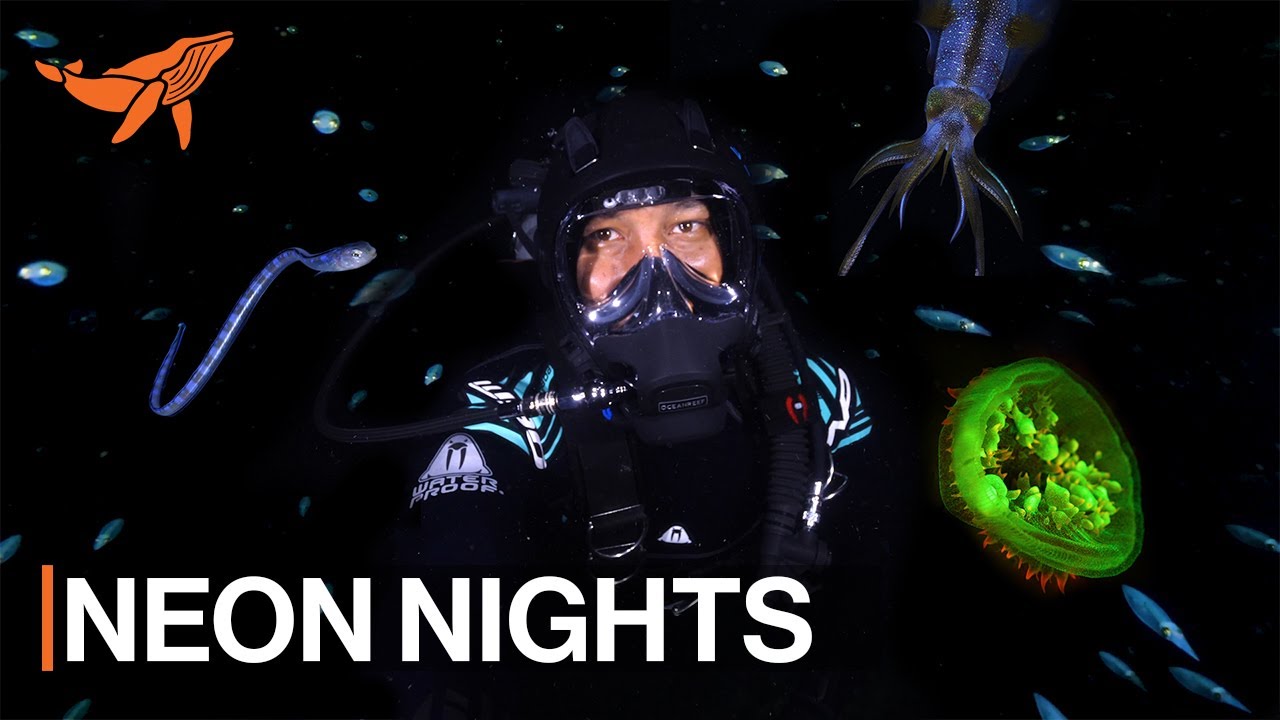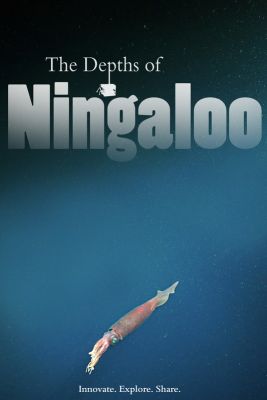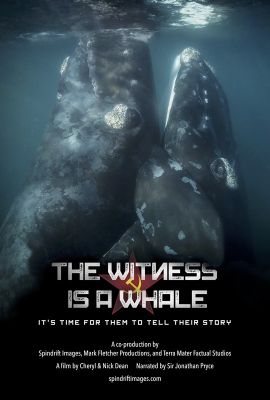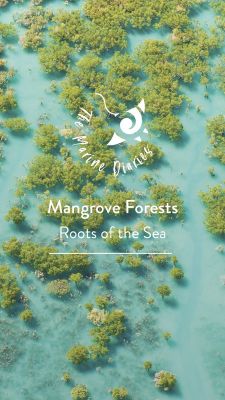WILD EARTH OCEANIA FILM FESTIVAL 2024
Changing the Tide
The four films featured in this session will take you on a journey throughout the ocean. You’ll get to discover some wonderful creatures that live in the deep and dark ocean, learn more about the crucial role mangroves play in the world, and follow a detective story spanning 60 years and half the globe.

Neon Nights | Diving into the World of Biofluorescence
Directed and Produced by Paul Nicklen
Sponsored – 7 minutes
Illuminating the depths and revealing a neon display of biofluorescence, in A Sea of Hope, co-founder Paul Nicklen leads a journey through the night, diving into unfamiliar worlds.
Using blue lights to capture underwater biofluorescence, one of nature’s most striking phenomena, Paul plunges into “a void of blackness.” Cutting through the dark with only his beam of light, he relinquishes control and uncovers the underwater secrets usually shielded within the dark expanse. Paul, joined by friend and fellow underwater photographer Marcelo Johan Ogata unveils the psychedelic display emitted from certain corals and animals when observed under blue light. The lights reveal the incredible contrast of these organisms from day to night alongside the abundant aquatic activity that bustles under the cloak of darkness.
SESSION TIME
Date: 21st of January, 2024
Time: 12:45pm – 2:45pm (includes 45 minutes Q&A)
Address: Mercury Cinema, 13 Morphett Street, Adelaide
This film session is appropriate for viewers above 15 years of age. Viewers under 15 years of age will require a guardian to be present.

The Depths of Ningaloo
Directed by Logan Mock-Bunting & Carlie Wiener and Produced by Logan Mock-Bunting, Alex Ingle, & Carlie Wiener
Short – 12 minutes
In March 2020, a team of ocean scientists set out to observe, document, and characterize the deep-sea biodiversity in the Cape Range and Ningaloo Canyons – a region off of Western Australia, where almost no exploration had taken place. This documentary was filmed entirely at sea, as Schmidt Ocean Institute’s research vessel Falkor – along with their underwater robot, Remotely Operated Vehicle (ROV) SuBastian – collected beautiful visual surveys and sampling of the environment, providing important evidence for the unique life forms and geologic structures of this little-studied region.
The remote Western Australian coast is well known for its immense diversity of evolutionary significant fauna, but this celebrated area remained nearly unexplored until this first-of-its-kind expedition.
WILD EARTH OCEANIA FILM FESTIVAL 2024
Changing the Tide
The four films featured in this session will take you on a journey throughout the ocean. You’ll get to discover some wonderful creatures that live in the deep and dark ocean, learn more about the crucial role mangroves play in the world, and follow a detective story spanning 60 years and half the globe.
SESSION TIME
Date: 21st of January, 2024
Time: 12:45pm – 2:45pm (includes 45 minutes Q&A)
Address: Mercury Cinema, 13 Morphett Street, Adelaide
This film session is appropriate for viewers above 15 years of age. Viewers under 15 years of age will require a guardian to be present.

Neon Nights | Diving into the World of Biofluorescence
Directed and Produced by Paul Nicklen
Sponsored – 7 minutes
Illuminating the depths and revealing a neon display of biofluorescence, in A Sea of Hope, co-founder Paul Nicklen leads
a journey through the night, diving into unfamiliar worlds.
Using blue lights to capture underwater biofluorescence, one of nature’s most striking phenomena, Paul plunges into “a void of blackness.” Cutting through the dark with only his beam of light, he relinquishes control and uncovers the underwater secrets usually shielded within the dark expanse. Paul, joined by friend and fellow underwater photographer Marcelo Johan Ogata unveils the psychedelic display emitted from certain corals and animals when observed under blue light. The lights reveal the incredible contrast of these organisms from day to night alongside the abundant aquatic activity that bustles under the cloak of darkness.

The Depths of Ningaloo
Directed by Logan Mock-Bunting & Carlie Wiener and Produced by Logan Mock-Bunting, Alex Ingle, & Carlie Wiener
Short – 12 minutes
In March 2020, a team of ocean scientists set out to observe, document, and characterize the deep-sea biodiversity in the Cape Range and Ningaloo Canyons – a region off of Western Australia, where almost no exploration had taken place. This documentary was filmed entirely at sea, as Schmidt Ocean Institute’s research vessel Falkor – along with their underwater robot, Remotely Operated Vehicle (ROV) SuBastian – collected beautiful visual surveys and sampling of the environment, providing important evidence for the unique life forms and geologic structures of this little-studied region.
The remote Western Australian coast is well known for its immense diversity of evolutionary significant fauna, but this celebrated area remained nearly unexplored until this first-of-its-kind expedition.

The Witness Is a Whale
Directed by Nick Dean & Cheryl Dean and Produced by Spindrift Images, Mark Fletcher Productions, & Terra Mater Factual Studios
Feature – 52 minutes
A detective story spanning 60 years and half the globe, The Witness Is a Whale documents the uncovering of a massive illegal and secret slaughter of over 200,000 whales by the Soviet Union and Japan in the 1960’s, an act described by scientists as “one of the greatest environmental crimes of the 20th century.”
Using interviews with Soviet era whaling scientists and whalers, contemporary conservation biologists from around the world, along with rare personal archival material, The Witness Is a Whale tells this story for the first time. What starts as an exposure of Soviet illegal whaling leads into a larger and darker story, as former Soviet whalers accuse Japan of also secretly killing whales, an act that Japan has never confessed to, even now as they reinstate commercial whaling.
The ramifications of removing so many whales from the ocean are revealed with examples of whales exhibiting both intimate and previously undocumented behavior. This is accompanied by descriptions of the successful recovery of many whale populations and our increasing scientific understanding of their importance in ocean ecosystems.

Mangrove Forests: Roots of the Sea
Directed by Rebecca Daniel and Produced by Jessica Mitchell
Micro short – 4 minutes
Step into the magical world of mangroves!
Situated along coastlines around the world, from Indonesia to the Caribbean, mangrove forests support a plethora of life – including humans. Providing a safe environment for juvenile marine species and protecting the coast from rapid erosion, mangroves are incredibly important marine ecosystems.
Marine Ecosystem Diaries is a project launched by The Marine Diaries, an ocean science communication platform giving a voice to the ocean, its inhabitants, and the people who depend on it. The project launched in January 2021 and will be running for nine months (until the end of September 2021). It explores nine different marine ecosystems, from coral reefs to polar seas. It highlights each important ecosystem, telling their stories through easily accessible and educational materials.

